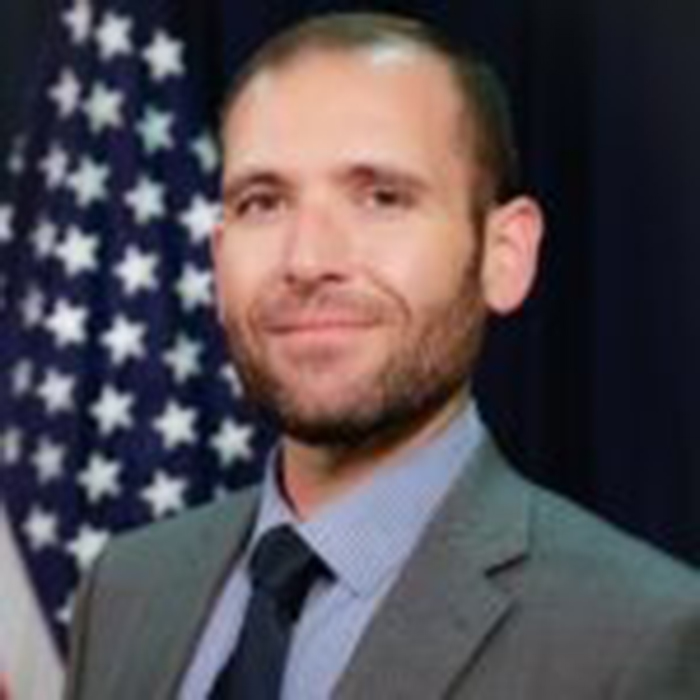A United States government official recently made a public call for Guyana to have “productive, inclusive dialogue” on the issues of the local content policy (LCP) and the Natural Resource Fund (NRF), which Washington believes can foster opportunities for all Guyanese and benefit the country as a whole.
“We know these reforms are not easy, so through our U.S. Embassy in Georgetown, we are working to help foster communities that support strong investment in not just industries, but people,” were the words of Pedro J Martin, US State Department’s Acting Director of the Office of Caribbean Affairs.
“Taken together, the local content policy and careful investment from the Natural Resource Fund can foster opportunities for all Guyanese and benefit the country as a whole. We look forward to and publicly call for productive, inclusive dialogue on these important issues,” Martin said.
He added that by building a culture of transparency, predictability, stability, accountability, and due process, in addition to implementing international best practices in procurement, and promoting mutually beneficial local partnerships, Guyana has the opportunity to be a real leader in the region.
Martin made the call on October 7 while addressing the opening reception for participants in the ‘Doing Business with Guyana’ conference in south Florida, convened by the Guyanese American Chamber of Commerce (GACC).
In the audience was Prime Minister Mark Phillips as well as other government officials.
Questions have been raised here as to why the government has moved so slowly on the NRF and LCP.
More than a year in office the PPP/C government is yet to activate the NRF or to bring amended legislation as it is believed that it doesn’t want to be constrained by the annual spending limits that the fund will impose. A draft LCP law has only recently been circulated.
In its defence the government has argued that it has not spent a dollar of the oil money but according to economist Dr Tarron Khemraj in a recent analysis in this newspaper, its actual and projected spending far outstrips what would have been expended from the monies in normal circumstances and is likely to rise even higher.
“A transparent and inclusive Guyana is key to ensuring a favorable investment climate that helps Guyana grow and prosper…,” Martin told the recent Miami conference.
Noting that Guyana has the distinction of being the only country in the region with positive GDP growth in 2020, growing its economy by over 40%., Martin said that is in no small part due to the work and commitment of those in attendance at the conference “but more work needs to be done”.
He said the U.S. government looks forward to inclusive dialogue on a proposed LCP and amended NRF legislation that charts a clear, realistic path for Guyana, the local private sector, international investors with knowledge to share, and the Guyanese people.
According to the State Department official the local content policy should strike a balance between protecting Guyana’s human capital while also creating a welcoming atmosphere for international investors to spur innovation and diversify the economy.
“If done correctly, the policy could serve as an incentive to form partnerships and joint ventures that enable both U.S. and Guyanese firms to share expertise, best practices, and profit together across many sectors,” Martin added.
Martin’s address mirrored the views expressed a month earlier here by US Ambassador Sarah-Ann Lynch, a sign that Washington is pressing the administration in Georgetown on key issues in the oil and gas sector.
Addressing the American Chamber of Commerce (AmCham) general meeting on September 1, Lynch posited that local content and partnerships will set the tone for transitioning Guyana’s development agenda.
To avoid the resource curse, she said, Guyana is correct in implementing guard rails that legislate investing in the country’s workforce, empowering Guyanese to innovate, developing capital markets, and growing its industries.
The US Ambassador noted that the local content policy along with careful investment from the Natural Resource Fund has the potential to foster opportunities for all Guyanese and benefit the country as a whole.
The policy, she underscored, if done correctly can serve as an incentive to form partnerships and joint ventures that enable both US and Guyanese firms to not only share expertise and best practices, but also profits across many sectors.
Lynch said that moving into 2022, the US government and the US private sector are looking forward to a finalised local content policy and amended Natural Resource Fund legislation that sets a realistic path forward.
“The local content policy should strike a balance between protecting Guyana’s human capital while also creating a welcoming atmosphere for international investors to spur innovation and offer new products and services,” she emphasised.






